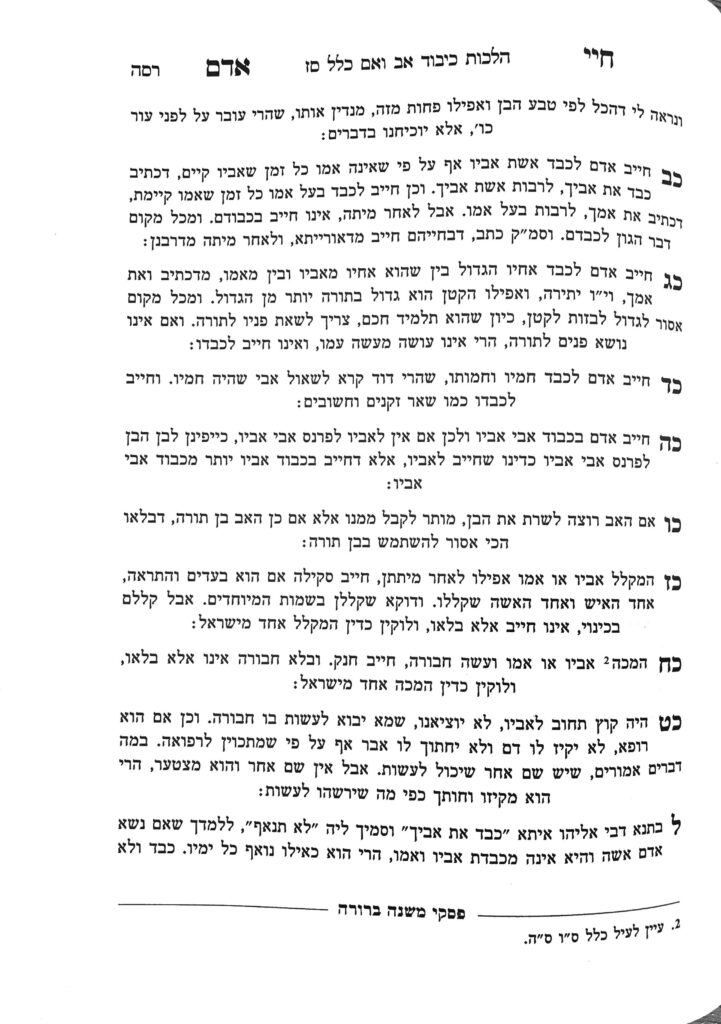We are beginning siman 25, where the Chayei Adam continues to discuss other individuals who are included as adjuncts in the mitzvah of kibud av v’eim.
The Chayei Adam writes that a person is chayav to be mechabed their father’s father. The poskim point out that the halacha applies to their mother’s father, and to their grandmothers. We have learned (shiur 1348; see below) that the chiyuv kavod to a grandparent is an extension of the chiyuv kavod to a parent. We have also learned (shiurim 1338-1339) that the chiyuv kibud av v’eim is mishel av; however, if the father does not have the means to support himself, the son will be chayav to support the father due to the mitzvah of tzedakah. If the father cannot support his father (i.e., the grandfather), the Chayei Adam writes that beis din has the power to force the grandson to support the grandparent. The Chayei Adam follows the opinion of the Shach in Yoreh Deah. However, there are other poskim who hold that Beis Din does not have the power to force the grandson, but every local Beis Din has the right to make a takana to obligate the grandchild, so practically the grandchild will be obligated either way.
The Chayei Adam next discusses the hierarchy of kavod between a father and grandfather. The Chayei Adam writes that one is chayav to be mechabed one’s father before their grandfather. We have learned (shiur 1348) that the chiyuv to be mechabeid one’s grandfather is not an independent, direct chiyuv, but an indirect chiyuv as a result of the chiyuv to be mechabeid one’s father. It is certainly appropriate to be mechabeid one’s grandfather because he is his father’s father. However, halachically, it is an expression of the chiyuv kavod to one’s father, and not an independent chiyuv. Therefore, it cannot override the primary chiyuv from which it stems–kibud av–and therefore kibud av takes precedence.
Practically, if a child is serving at a meal, they would have a chiyuv to serve their father before their grandfather. Obviously, their father could be mochel, and then the grandchild could serve the grandfather before their father.
Summary
- A grandchild is chayav to be mechabed their grandparents. However, kibud av takes precedence over kibud of a grandparent, because the chiyuv kibud for a grandfather only exists as an extension of kibud av.
- Although we pasken mishel av, in the same way a child who has the means may be chayav to support his parents by dint of the mitzvah of tzedakah, a grandchild would be chayav to support their grandparents as well.
- A father could be mochel on his kavod in order for a grandchild to give precedence to a grandparent.



